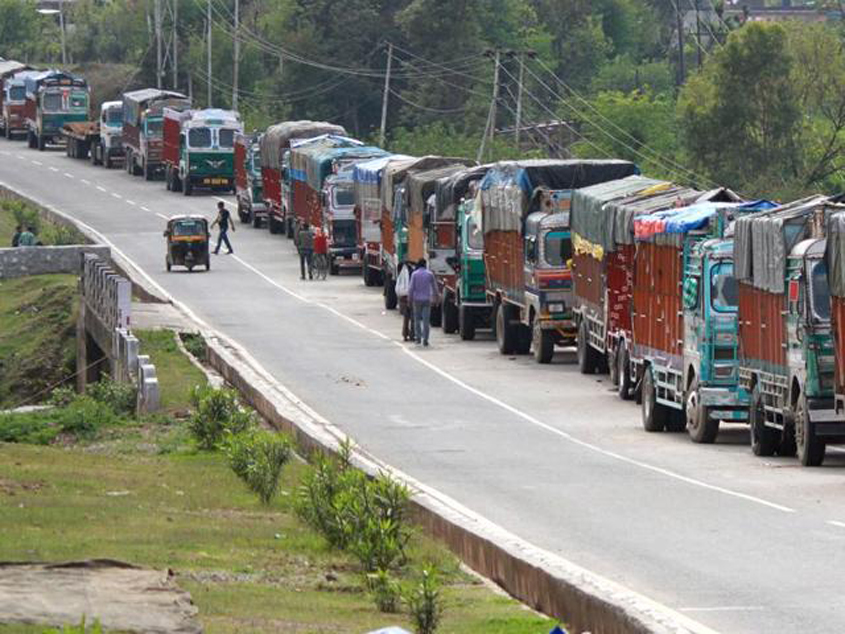The proposed technology-enabled e-way bill for movement of goods worth over Rs 50,000 has not been rolled out on a national scale yet, but, instead of waiting for its launch, some states have already made their “version” of the e-way bill, along with the Goods and Services Tax (GST) docket, mandatory, thereby making it clear that bureaucrats in such states are not willing to give up “inspector raj”.
The proposed e-way bill under GST—meant to ensure that transporters don’t avoid paying GST while ferrying goods—has not been launched yet by the Goods and Services Tax Network (GSTN) due to the lack of technological preparedness. However, the GSTN has announced that the requirement of e-way bill, along with the GST docket, will be implemented in coming months when all technical aspects for its implementation are ready.
Under the new tax regime, a document called e-way bill, or electronic way bill, is required to transport goods worth over Rs 50,000. The e-way bill is proposed as a permit of sorts in electronic format, which will have details of the goods carried on a vehicle. Some stakeholders have been apprehensive that such a document may revive “inspector raj”, undermining the gains achieved by the abolition of check posts.
“Despite the fact that the technology platform required for the implementation of the e-way bill, as proposed by the GSTN, is not ready, Uttar Pradesh (UP) and West Bengal appear to be the first states to ‘implement’ the e-way bill and this has slowed down the movement of goods on highways,” an official working with the GSTN told The Sunday Guardian..
“The proposed e-way bill for moving goods within the country would rely heavily on technology, employing chips and codes, to ensure that monitoring of movement of goods does not bring back inspector raj and slow down goods traffic on highways,” the same official cited above said.
“After the launch of the GST on 1 July, the movement of commercial goods had speeded up as states abolished entry check posts and state governments should have waited for the final implementation of the e-way bill under the GST,” the GSTN official said.
According to the proposed framework, GSTN will generate e-way bills that will remain valid for one to 15 days, depending on the transport distance. A one-day permit will be for a distance up to 100 km, while a 15-day permit will allow over 1,000 km transit, as per the proposed law. A tax officer can intercept any conveyance to verify the e-way bill or the physical goods for all inter-state and intra-state movement of goods.
Experts have shown concern over the “implementation” of the e-way bill by some state governments before the final roll out after the GSTN is ready with the technological framework. Ashok Jain, a former member of the Express Industry Council of India, an organisation which represents small and large express delivery service companies, said: “The e-way bill implemented by some states in an unprepared manner will prove to be a logistical challenge and will slow down the speed of movement of goods and services.”
However, a section of experts have praised the proposed e-way-bill under the GSTN. Bhagyashree Singh of Merakii Group, a marketing solutions firm, said: “The implementation of e-way bill for the movement of goods worth over Rs 50,000 from one state to another will check tax evasion as all the data of movement of goods will be added in the e-way bill and by scanning the QR code mentioned in the e-way bill, the inspector concerned can get all the information at one go. Also, the idea of GST is to create a seamless national market and technological preparedness is the backbone of its success.”
Naveen Kumar, director of Karam Logistics, a company involved in road carriage business, said: “I have to face challenges while generating e-way bills for forwarding goods to Uttar Pradesh. As a domestic roadways service provider, my company has to generate almost five e-way bills daily, which is a difficult task. Also, the check posts on the UP border are not equipped with QR code scanning machines. Manual verification of e-way bills is time consuming.”

